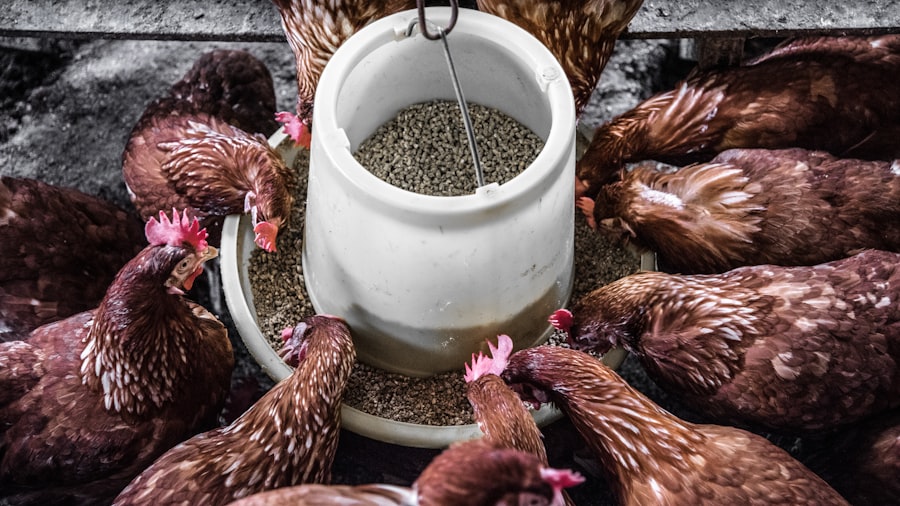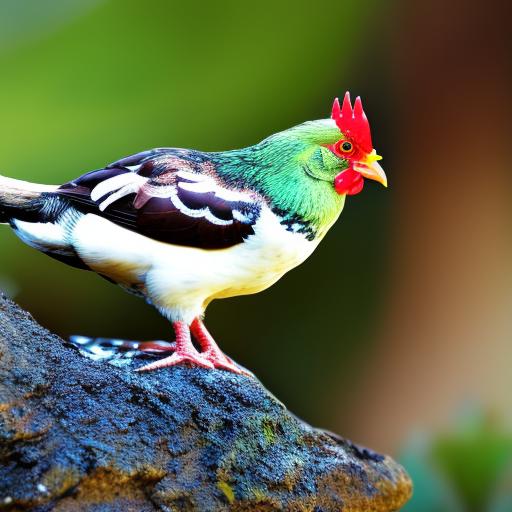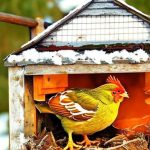Keeping chickens in urban areas has become increasingly popular in recent years. Many people are discovering the benefits of having their own flock of chickens in their backyard. Not only do chickens provide fresh eggs, but they also offer natural pest control and fertilizer for your garden. In Blacktown Council, there are regulations in place to ensure that keeping chickens is done responsibly and does not cause any issues for neighbors or the community.
Blacktown Council has specific regulations regarding the keeping of chickens in residential areas. These regulations are in place to ensure that the welfare of the chickens is maintained and that there are no negative impacts on the surrounding environment or community. It is important for residents to familiarize themselves with these regulations before deciding to keep chickens in their backyard.
Key Takeaways
- Keeping chickens in Blacktown Council can be a rewarding and sustainable hobby.
- Backyard chickens can provide fresh eggs, natural pest control, and fertilizer for your garden.
- Blacktown Council has specific rules and regulations for keeping chickens, including limits on the number of birds and coop placement.
- When choosing a chicken breed, consider factors such as temperament, egg-laying ability, and climate adaptability.
- Building a chicken coop requires careful planning and attention to features such as ventilation, nesting boxes, and predator protection.
Benefits of keeping chickens in your backyard
One of the main benefits of keeping chickens in your backyard is the availability of fresh eggs. There is nothing quite like collecting eggs from your own flock and enjoying them for breakfast. Not only are fresh eggs delicious, but they are also more nutritious than store-bought eggs. Chickens that are allowed to roam freely and eat a varied diet produce eggs that are higher in omega-3 fatty acids and vitamins.
Chickens also provide natural pest control for your garden. They love to eat insects, slugs, and snails, which can be a nuisance in a backyard garden. By allowing your chickens to roam freely in your yard, you can reduce the need for chemical pesticides and keep your garden healthy and pest-free.
In addition to providing fresh eggs and natural pest control, chickens also produce high-quality fertilizer for your garden. Chicken manure is rich in nitrogen, phosphorus, and potassium, which are essential nutrients for plant growth. By composting chicken manure and using it as fertilizer, you can improve the health and productivity of your garden.
Keeping chickens in your backyard also provides educational opportunities for children. Children can learn about where their food comes from and the responsibility of caring for animals. They can also learn about the life cycle of chickens and witness firsthand the process of hatching eggs and raising chicks.
Rules and regulations for keeping chickens in Blacktown Council
Blacktown Council has specific rules and regulations in place for keeping chickens in residential areas. These regulations are designed to ensure that the welfare of the chickens is maintained and that there are no negative impacts on the surrounding environment or community.
The number of chickens allowed per household in Blacktown Council is limited to a maximum of six. This limit is in place to prevent overcrowding and ensure that each chicken has enough space to live comfortably.
Coop and run requirements are also specified by Blacktown Council. The coop must be secure and provide adequate shelter, ventilation, and protection from predators. The run must be securely fenced to prevent the chickens from escaping and causing a nuisance to neighbors.
Noise and odor regulations are also in place to ensure that keeping chickens does not cause any issues for neighbors. The coop must be kept clean and odor-free, and noise from the chickens must not exceed acceptable levels.
Choosing the right chicken breed for your backyard
When choosing a breed of chicken for your backyard, there are several factors to consider. Some breeds are better suited for egg production, while others are known for their meat or ornamental qualities. It is important to choose a breed that fits your specific needs and preferences.
Some popular breeds for backyard flocks include Rhode Island Reds, Australorps, and Plymouth Rocks. These breeds are known for their excellent egg-laying abilities and friendly temperaments. They are also hardy and adaptable to different climates, making them suitable for backyard environments.
There are several places where you can purchase chickens in Blacktown Council. Local farm supply stores often sell chicks or pullets (young hens), or you can look for local breeders or hatcheries. It is important to purchase chickens from reputable sources to ensure that they are healthy and free from diseases.
Building a chicken coop in Blacktown Council
Building a chicken coop in Blacktown Council requires careful planning and consideration of the regulations in place. The coop must meet certain requirements to ensure the welfare of the chickens and prevent any negative impacts on the surrounding environment or community.
To build a basic coop, you will need materials such as wood, wire mesh, nails, and screws. The coop should be sturdy and secure to protect the chickens from predators. It should also provide adequate ventilation and natural light.
If you are on a budget, there are several tips for building a coop without breaking the bank. You can repurpose materials such as old pallets or scrap wood to save money. You can also consider building a smaller coop or using a pre-made coop kit to reduce costs.
If you are not confident in your DIY skills, you can hire a professional to build a custom coop for you. There are many companies that specialize in building chicken coops and can create a design that meets your specific needs and preferences.
Chicken coop design and features

When designing your chicken coop, there are several factors to consider. The size and layout of the coop should provide enough space for the number of chickens you plan to keep. The general rule of thumb is to allow at least 4 square feet of space per chicken inside the coop and 10 square feet per chicken in the run.
The coop should also include nesting boxes for the chickens to lay their eggs. These boxes should be dark and secluded to provide privacy for the hens. The number of nesting boxes needed depends on the number of chickens you have, but a general guideline is one box for every 3-4 hens.
Roosts are another important feature of a chicken coop. Chickens naturally roost at night, so providing them with a comfortable and elevated perch is essential. The roosts should be at least 2 inches wide and positioned higher than the nesting boxes.
Ventilation is crucial for the health and well-being of the chickens. The coop should have windows or vents that can be opened and closed to regulate temperature and airflow. Adequate ventilation helps prevent the buildup of moisture and ammonia, which can lead to respiratory issues in chickens.
Maintaining a clean and healthy chicken coop
Keeping a clean and healthy chicken coop is essential for the well-being of your chickens. Regular cleaning and disinfecting of the coop helps prevent the spread of diseases and parasites.
To clean the coop, remove all bedding material and sweep or scrape out any debris. Use a mild detergent or poultry-safe disinfectant to clean all surfaces, including the walls, floor, nesting boxes, and roosts. Rinse thoroughly with water and allow the coop to dry before adding fresh bedding.
Preventing and treating common chicken illnesses is also important for maintaining a healthy flock. Regularly inspect your chickens for signs of illness, such as lethargy, loss of appetite, or abnormal behavior. If you suspect that a chicken is sick, isolate it from the rest of the flock and consult a veterinarian for diagnosis and treatment.
Managing pests in and around the coop is another aspect of maintaining a clean and healthy environment for your chickens. Regularly check for signs of pests such as mites, lice, or rodents. Use natural pest control methods such as diatomaceous earth or predator-friendly traps to keep pests under control.
Feeding and caring for backyard chickens
Feeding your backyard chickens a balanced diet is essential for their health and egg production. There are several types of feed available for chickens, including pellets, crumbles, and mash. Choose a feed that is appropriate for the age and purpose of your chickens.
In addition to commercial feed, chickens also benefit from supplements such as grit, oyster shell, and fresh greens. Grit helps chickens digest their food, while oyster shell provides calcium for strong eggshells. Fresh greens, such as lettuce or kale, provide additional nutrients and help keep chickens entertained.
Providing clean water is also important for the health and well-being of your chickens. Chickens need access to fresh water at all times, so make sure to clean and refill their water containers regularly. Consider using a waterer with a nipple or cup system to prevent contamination and spillage.
Establishing a daily care routine for your chickens is essential for their well-being. This routine should include checking on the chickens to ensure they are healthy and have enough food and water. It should also include collecting eggs, cleaning the coop, and providing any necessary supplements or treats.
Egg production and collection from backyard chickens
Several factors can affect egg production in backyard chickens. The breed of chicken, age, diet, and environmental conditions all play a role in the number of eggs produced. On average, a healthy hen can lay between 200-300 eggs per year.
Collecting and storing eggs properly is important to ensure their freshness and quality. Eggs should be collected daily to prevent them from becoming dirty or damaged. Store eggs in a cool place, preferably in the refrigerator, with the pointed end down to help maintain their freshness.
Using eggs in cooking and baking is one of the joys of keeping backyard chickens. Fresh eggs have a richer flavor and brighter color than store-bought eggs. They can be used in a variety of recipes, from omelets and quiches to cakes and cookies.
Troubleshooting common issues with backyard chickens and their coop
Keeping backyard chickens comes with its fair share of challenges. Aggressive or sick chickens can be a problem in a flock. It is important to address these issues promptly to prevent further harm to the chickens or other members of the flock. Isolate aggressive or sick chickens and consult a veterinarian for advice on how to handle the situation.
Repairing and maintaining the coop is another common issue that backyard chicken owners face. Over time, the coop may need repairs or upgrades to ensure its structural integrity and functionality. Regularly inspect the coop for any signs of damage or wear and make necessary repairs as needed.
Finding resources and support in Blacktown Council for backyard chicken owners is important for new and experienced chicken keepers alike. Local farm supply stores, online forums, and community groups can provide valuable information and support. It is also a good idea to connect with other backyard chicken owners in your area to share experiences and learn from each other.
If you’re interested in Blacktown Council’s initiative of keeping chickens, you might also find these articles from Poultry Wizard helpful. Check out their article on chicken coop interior ideas for some creative and practical tips on how to make your coop comfortable and functional. Additionally, if you have a shed that you’re thinking of repurposing, Poultry Wizard has a great guide on turning a shed into a chicken coop. And if you want to integrate your chickens into your garden, they also have an article on creating a garden chicken coop. These resources will surely provide you with valuable insights and inspiration for your own chicken-keeping journey.
FAQs
What is Blacktown Council’s policy on keeping chickens?
Blacktown Council allows residents to keep up to 10 chickens on their property, as long as they comply with certain regulations.
What are the regulations for keeping chickens in Blacktown?
Residents must ensure that their chickens are kept in a secure and clean enclosure, and that they do not cause a nuisance to their neighbours. They must also provide adequate food, water, and shelter for the chickens.
Do residents need a permit to keep chickens in Blacktown?
No, residents do not need a permit to keep chickens in Blacktown. However, they must comply with the regulations set out by the council.
What are the benefits of keeping chickens?
Keeping chickens can provide a source of fresh eggs, as well as being a fun and educational hobby for families. Chickens can also help to reduce food waste by eating scraps and providing natural fertiliser for gardens.
Are there any risks associated with keeping chickens?
Chickens can carry diseases such as salmonella, so it is important for owners to practice good hygiene when handling them. There is also a risk of attracting pests such as rats and mice if the chicken enclosure is not kept clean and secure.
Meet Walter, the feathered-friend fanatic of Florida! Nestled in the sunshine state, Walter struts through life with his feathered companions, clucking his way to happiness. With a coop that’s fancier than a five-star hotel, he’s the Don Juan of the chicken world. When he’s not teaching his hens to do the cha-cha, you’ll find him in a heated debate with his prized rooster, Sir Clucks-a-Lot. Walter’s poultry passion is no yolk; he’s the sunny-side-up guy you never knew you needed in your flock of friends!







